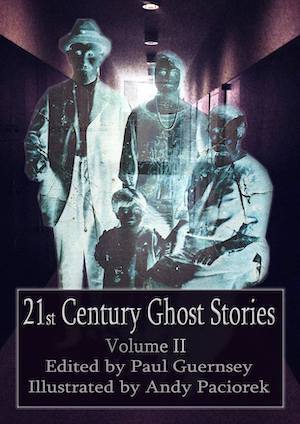
Illustration For The M.R. James Story, “Oh, Whistle, And I’ll Come To You, My Lad.” James McBryde (1904)
James: Master Of The Ghost Story’s Golden Age
The “golden age” of the ghost story ran from the early 1840s to the beginning of World War One—or from the start of Queen Victoria’s reign to just over a dozen years beyond her death. This was a period when there was a great deal of interest in all things ghostly. Ghost stories were extremely popular in both magazines and books—as well as well in front of the fireplaces of upper- and middle-class Victorian homes, where taking turns telling them, especially at Christmastime, had become a tradition.
Such famous writers as Charles Dickens, Robert Luis Stevenson, and Henry James turned out ghost stories along with their more “literary” work. But the genre also spawned a number of supernatural specialists, perhaps the most famous, innovative, and highly regarded of whom was the British author M.R. (Montague Rhodes) James (1862-1936).
James shunned the Gothic settings popular among many earlier authors of paranormal tales, and instead set his fictions in isolated corners of contemporary Britain and continental Europe. His stories tend to take place in remote villages along the coast, or out in the lonely countryside.
He is acknowledged at the originator of the “antiquarian” sub genre of ghost stories, in which a relic, old book, work of art, or other (usually ancient) haunted artifact serves as a lightning rod for disturbing supernatural activity.
By many accounts, James may have felt conflicted about his sexuality, and some critics have found evidence of (apparently) unintentional Freudian sexual metaphors in his work.
James’ short-story collections include Ghost Stories of an Antiquary (1904), More Ghost Stories of an Antiquary (1911), A Thin Ghost and Others (1919), and A Warning to the Curious and Other Ghost Stories (1925). Among his most critically acclaimed individual stories are Oh, Whistle, and I’ll Come To You, My Lad, and The Mezzotint.
M.R. James has had an influence on many other writers—his own contemporaries, as well as people working in the fiction and cinema of our own era.

